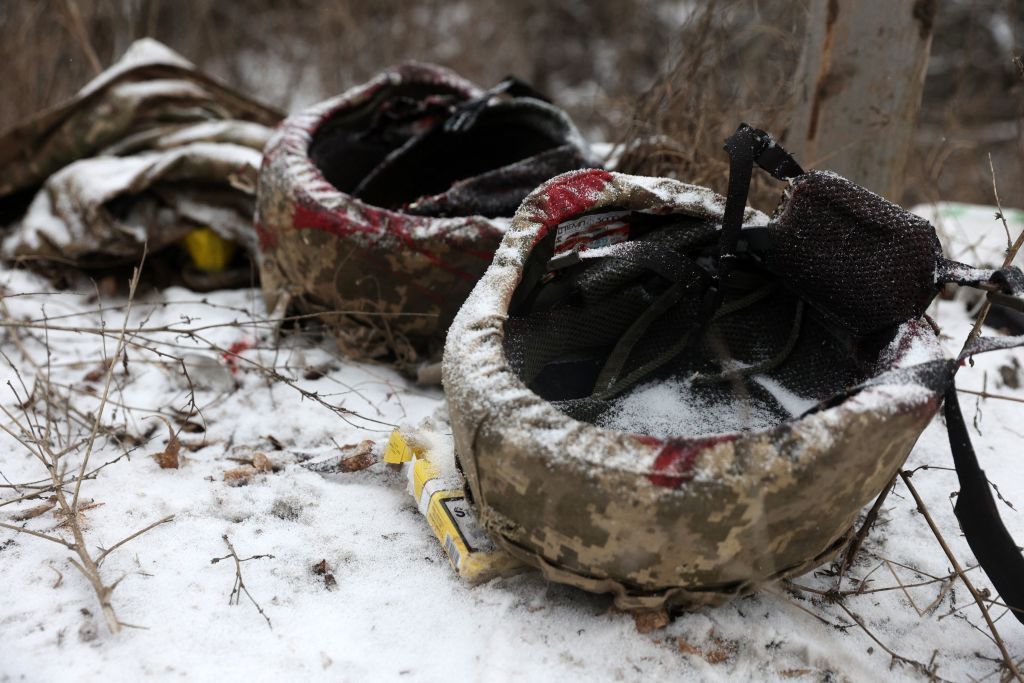
Key developments on April 26:
- Zelensky holds phone call with China's Xi Jinping, appoints Ukrainian ambassador to Beijing
- CNN: White House 'welcomes' Zelensky-Xi call, expresses caution regarding Chinese peace plan.
- Italian correspondent wounded, Ukrainian fixer killed in Kherson Oblast
- 44 Ukrainian POWs freed in prisoner exchange
President Volodymyr Zelensky held a phone call with Chinese leader Xi Jinping on April 26. This is their first call since Russia launched the full-scale war against Ukraine.
Zelensky said it was a "long and meaningful phone call," in which he said the two leaders discussed bilateral relations and ways to establish "a just and sustainable peace for Ukraine." He underscored that only a complete liberation of Ukrainian territories is acceptable despite the "tough" battlefield conditions, the President's Office reported.
In the nearly hour-long phone call, the two sides agreed on appointing Ukraine's ambassador to China, which Zelensky said would "give a powerful impetus" to developing bilateral relations.
Zelensky later appointed Pavlo Riabikin, the former minister of strategic industries, as the new ambassador. Ukraine's previous ambassador to China, Serhii Kamyshev, died on Feb. 14, 2022, just over a week before the full-scale war began.
China remained careful, giving little information about the call.
As cited by Chinese state media, Xi said that he would send a special delegation to Ukraine for a "political settlement" of the "crisis," adding that "China has always been on the side of peace" and "dialogue and negotiations are the only way out of the conflict."
Without condemning Russia's brutal war or naming Russia, the Chinese Foreign Ministry said in its statement, "China will continue to facilitate talks for peace and make its efforts for early ceasefire and restoration of peace."
The long-anticipated Zelensky-Xi phone call comes as Washington and NATO issue a warning to China against providing lethal weapons to Russia.
In late February, NATO said it saw signs that China was preparing to send lethal aid to Russia, and the U.S. warned that it would target Chinese firms and individuals involved, immediately hitting with a heavy economic price.
While neither the U.S. nor NATO officially confirmed that China had provided lethal aid to Russia, the tension remains high as Beijing and Moscow increasingly isolate themselves from the West.
The growing Beijing-Moscow relations have also alerted the West and Ukraine, especially after Xi's two-day visit to Russia, where he held lengthy talks with Russian President Vladimir Putin.
A few days before the full-scale war, the two leaders declared "friendship without limits," agreeing there would be no "forbidden areas of cooperation."
Despite tensions, the U.S. welcomed the Zelensky-Xi phone call, yet being cautious of "whether that's gonna lead to some sort of meaningful peace movement or plan or proposal," White House National Security Council Spokesperson John Kirby said, as quoted by CNN.
China's proposed 12-point "peace plan," for instance, fails to directly call for a complete Russian withdrawal, with Western officials criticizing it as a pro-Moscow peace agreement that undermines Ukraine's sovereignty.
After the phone call, Russian Foreign Ministry spokeswoman Maria Zakharova praised China's readiness to begin negotiations, adding that Russia and China held "a broad consonance of our principled approaches" on China's peace plan.
Ukraine and Western nations have called on Russia to end its war against Ukraine, with Zelensky reiterating on April 26 to liberate all of its territories.

Italian journalist wounded, his Ukrainian colleague killed
Correspondent of Italian newspaper La Repubblica Corrado Zunino was wounded, and his Ukrainian colleague Bohdan Bitik was killed near the Antonivsky Bridge, close to the liberated city of Kherson, due to a Russian attack.
The paper reported that the two were "most likely" ambushed by Russian snipers. While areas on the west bank of the Dnipro River, including the regional capital of Kherson, were liberated by Ukrainian forces last fall, the Russian troops are still on the other side of the major waterway.
The Italian journalist's fixer Bitik, who helped organize reporting trips, layed still right after the attack, Zunino told the newspaper.
Zunino, who the newspaper says was also covered in blood, was taken to a Kherson hospital and contacted the Italian Embassy.
The Ukrainian is survived by his son and a wife.
"Russians don't care if you're Russian, Italian or Ukrainian, they just shoot," Foreign Minister Dmitro Kuleba told Italian media, adding that he was briefed on the incident immediately by the Ukrainian military.
Under international humanitarian law, attacking media representatives and their equipment in a conflict zone is illegal.
The Italian journalist told La Repubblica that he and Bitik could be "clearly recognized" as journalists.
Throughout the full-scale war, Russia has indiscriminately killed civilians and journalists across Ukraine, often firing upon non-military targets.
44 Ukrainian POWs freed in latest prisoner exchange
Forty-two Ukrainian military personnel and two civilians have returned to Ukraine from Russian captivity in the latest prisoner swap, Presidential Office head Andrii Yermak reported on April 26.
The Ukrainian prisoners of war who were released included soldiers, navy personnel, border guards, and national guardsmen, according to the official.
Among them were 36 privates and sergeants, as well as six officers. According to the report, the former POWs took part in Ukraine's defense of Mariupol, including the Azovstal plant, and fought against Russian troops in Kherson Oblast and the east.
Some of the exchanged POWs were wounded and tortured by Russia in captivity, Yermak said. Among them were also two men whose wives had been previously released from Russian captivity.
 Kyiv IndependentAlexander Khrebet
Kyiv IndependentAlexander Khrebet
Comments
No comments yet. Be the first to react!